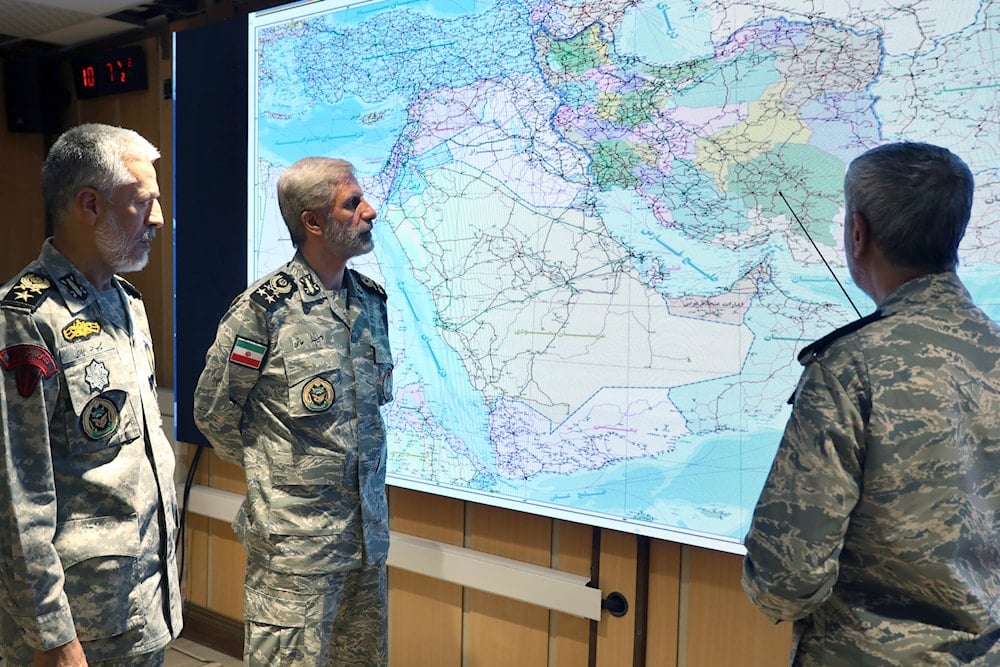Iran vows to boost defense amid growing threats: Army chief
Major General Amir Hatami affirms the country’s ongoing efforts to enhance its defense capabilities, emphasizing unity and preparedness.
-

In this photo released on Monday, June 23, 2025, Iran's Army Commander-in-Chief Major Gen. Amir Hatami, Admiral Mahmoud Mousavi, and Admiral Habibollah Sayyari attend a meeting in Zolfaghar central headquarters, Iran (AP)
Iran is steadily working to bolster its defensive strength in the face of persistent threats, Army Commander-in-Chief Major General Amir Hatami stated on Sunday
Speaking during a meeting with members of Parliament’s Civil Commission, Hatami underlined that the Armed Forces remain focused on constantly advancing Iran’s defense capabilities.
“Among the components of national power, those related to defense belong to the armed forces and the Army of the Islamic Republic, and we have not lost a moment in this field,” he said, adding that Iran is “seriously and continuously striving to improve these components.”
Leadership, sacrifice, and national unity
Referencing the 12-day war launched by "Israel" in June, Hatami pointed to leadership, sacrifice, and national unity as the decisive factors that compelled the enemy to seek a ceasefire.
He highlighted the influential role of the Leader of the Islamic Revolution, Sayyed Ali Khamenei, along with the solidarity and perseverance of the Iranian people and the Armed Forces, stating, “The cohesion, empathy, insight, and determination of the Iranian nation, together with the efforts of the armed forces, compelled the enemy to request a ceasefire."
Hatami added that Iran is intent on safeguarding and further reinforcing its defense capabilities, noting that the experience of the war has heightened national understanding and preparedness for future challenges.
“Today, without a doubt, our people are more aware of the enemy’s intentions than in the past. They clearly understand their malicious designs and know that the path to confronting the enemy lies in the same components of victory demonstrated in the 12-day imposed war,” he said.
The 12-day war: 'Israel' severely miscalculates
In mid-June 2025, "Israel" launched a surprise series of strikes targeting Iranian nuclear and military infrastructure, including facilities in Natanz and Isfahan. Several Iranian commanders were martyred in the initial raids.
In response, Iran unleashed a powerful counterattack, firing a barrage of ballistic missiles and deploying drone swarms that struck deep into occupied territories.
Iranian missiles reached targets near Askalan, Tel Aviv, and military sites across the occupied Palestinian territories, causing significant damage and prompting mass evacuations. The Iranian Armed Forces demonstrated a coordinated and technologically advanced response, surprising many observers with the scale and precision of their operations.
The 12-day war saw continuous exchanges, with both sides incurring losses. Iran's response was widely viewed as a strategic show of force, not only deterring further Israeli escalation but also asserting its regional deterrence posture. The confrontation raised fears of a broader regional war, drawing concern from international actors and prompting urgent diplomatic interventions.

 3 Min Read
3 Min Read










